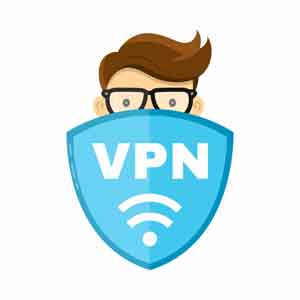A VPN, or virtual private network, is software that encrypts your personal information and keeps it safe from prying eyes. Whether you are looking for protection against hackers who want to steal credit card numbers or government officials investigating terrorism suspects, a VPN will protect your data on any device that connects to the internet.
VPNs have many benefits besides security they also allow you to access content blocked in certain countries and offer privacy when browsing sites like Facebook or Google. In order to get the most out of your VPN connection, make sure you know what type of service plan works best for you as well as how much bandwidth you need while connected. There are two types of VPN connections those with a monthly fee and those with a onetime payment. It is important to know the features of both plans before you make your choice. This guide will help you understand what you need to know about the right VPN for your specific needs.
What is a Virtual Private Network or VPN and why do I need VPN?

VPNs create a tunnel, known as a Virtual Tunnel, between the user’s device and the protected resource. The only data that travels through this tunnel is encrypted data meaning it’s safe from hackers! Some VPNs offer proxy extensions for Google Chrome and Firefox browsers; which allow you to surf different websites with encryption on. This is a must have if you’re looking to stay fully anonymous online.
VPNs are essential if you want to maintain your anonymity while browsing the internet but they do not protect your metadata (the various bits of information about where and how long certain pages were looked at). For guarding against these types of attacks, it’s recommended that users employ both their VPN software and app with crowd sourced anonymity sources like Tor or I2P. It’s also advised that you only use torrents if you have a VPN running as those are the primary way that people get caught pirating content.
What types of VPN exist, and which one is best for me?
There are several types of VPN software or apps, each with their own positives and negatives. There’s no clear winner it depends on the person using the service. Some users may want an app that lets them easily switch between different servers or locations, while others might want a simple to setup app without all the extra fluff. Besides software, there are mobile devices coming out every year with additional features. It’s important to find out what your needs as a user is.
How to set up a VPN
Once you’ve downloaded your VPN, it’s time to set it up. Follow the instructions for installing a software program on your device and follow the prompts. Most VPNs require some basic information, namely a username and password. Pay close attention to any additional information that may be needed in order to complete the installation process.
In conclusion, the VPN’s are a great way to get around geo restrictions. They also offer protection from hackers and other cyber threats when browsing on public WiFi networks or using unsecured networks at home. It’s not hard to set up your own VPN server on any computer in 5 minutes which is why they should be considered by many more people than just tech savvy individuals.
